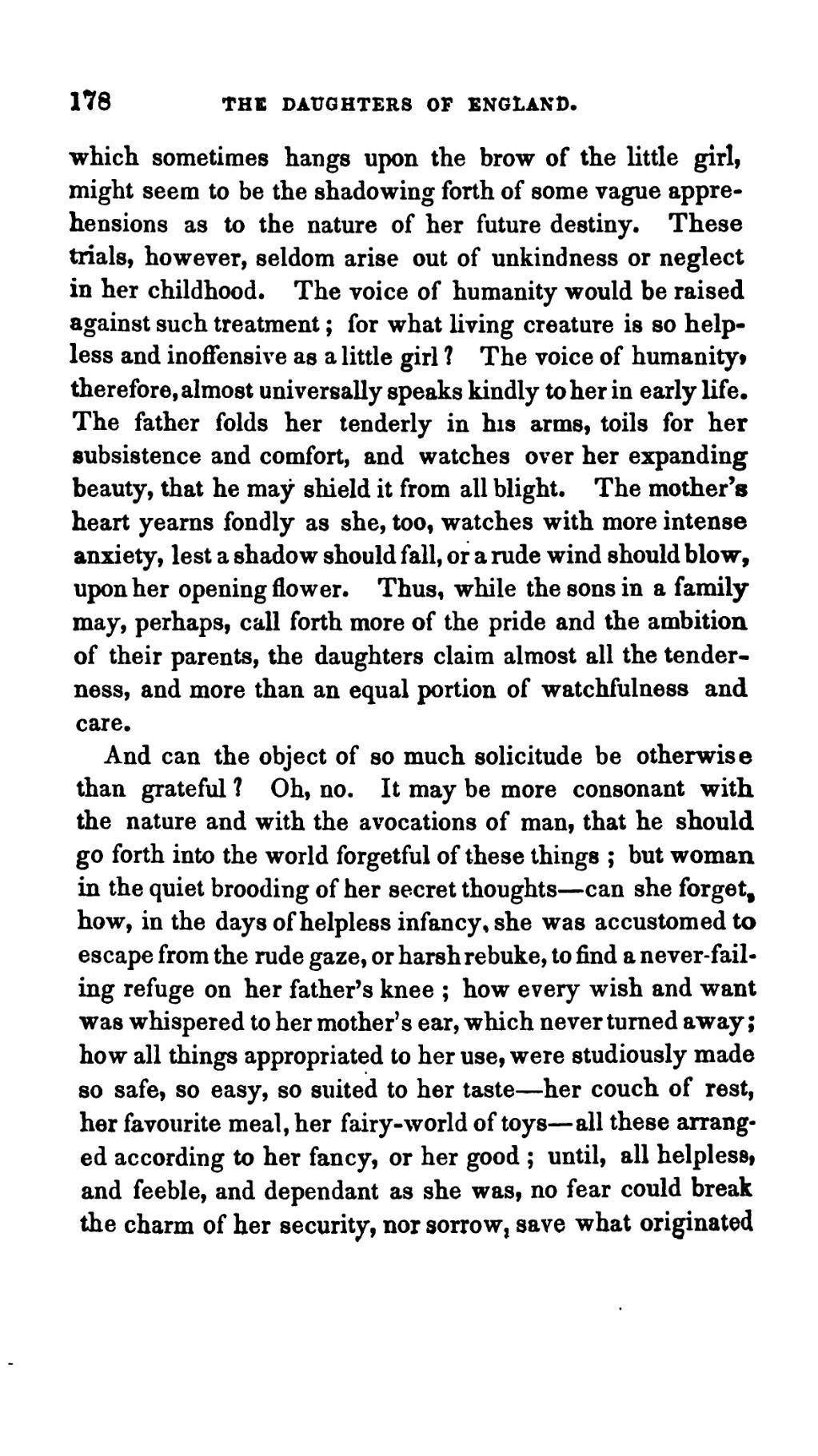which sometimes hangs upon the brow of the little girl, might seem to be the shadowing forth of some vague apprehensions as to the nature of her future destiny. These trials, however, seldom arise out of unkindness or neglect in her childhood. The voice of humanity would be raised against such treatment; for what living creature is so helpless and inoffensive as a little girl? The voice of humanity, therefore, almost universally speaks kindly to her in early life. The father folds her tenderly in his arms, toils for her subsistence and comfort, and watches over her expanding beauty, that he may shield it from all blight. The mother's heart yearns fondly as she, too, watches with more intense anxiety, lest a shadow should fall, or a rude wind should blow, upon her opening flower. Thus, while the sons in a family may, perhaps, call forth more of the pride and the ambition of their parents, the daughters claim almost all the tenderness, and more than an equal portion of watchfulness and care.
And can the object of so much solicitude be otherwise than grateful? Oh, no. It may be more consonant with the nature and with the avocations of man, that he should go forth into the world forgetful of these things; but woman in the quiet brooding of her secret thoughts—can she forget, how, in the days of helpless infancy, she was accustomed toescape from the rude gaze, or harsh rebuke, to find a never-failing refuge on her father's knee; how every wish and want was whispered to her mother's ear, which never turned away; how all things appropriated to her use, were studiously made so safe, so easy, so suited to her taste—her couch of rest, her favourite meal, her fairy-world of toys—all these arranged according to her fancy, or her good; until, all helpless, and feeble, and dependant as she was, no fear could break the charm of her security, nor sorrow, save what originated
